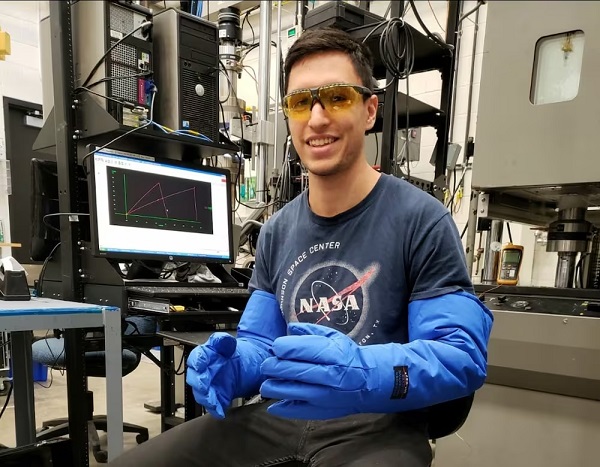Carlos Facundo Gatti, a 25-year-old Paraguayan biomedical engineer, is making significant contributions to international scientific research through groundbreaking developments in space medicine and biotechnology. From 3D-printed prosthetics to advanced therapies for use in space, Gatti’s work is a remarkable fusion of technological innovation and global impact, highlighting the potential of Latin American talent in cutting-edge science.
Gatti’s academic background includes a degree from Wichita State University and a master’s degree from Carnegie Mellon University, where he has led pioneering projects in various fields of biomedicine. One of his key initiatives, “3D Printed Prosthetics,” demonstrated how 3D printing technology can democratize access to affordable and functional prosthetics, addressing critical social needs while advancing medical innovation.
In the realm of tissue bioengineering, Gatti has pushed the boundaries of regenerative medicine. His research on bio-printed implants capable of regenerating skeletal tissues using living cell structures has opened new possibilities for treating muscle injuries. These advances set a precedent for personalized therapies and mark a significant milestone in regenerative medicine.
Currently, Gatti’s doctoral research focuses on space biomedicine, a vital area for the future of space exploration. His laboratory is developing protein-based therapies specifically designed for space environments, where high levels of radiation compromise the efficacy of traditional medications. This research is essential for long-term missions, such as trips to Mars and the establishment of lunar bases, and represents a crucial step toward ensuring the health and safety of astronauts.
One of his most recent achievements is a pending patent aimed at revolutionizing air travel for individuals with reduced mobility. The innovation allows passengers to use their own wheelchairs on commercial flights, a solution that underscores Gatti’s dedication to improving quality of life through practical applications of his work.
Join our WhatsApp channel
Despite his international success, Gatti remains deeply connected to Paraguay. He envisions applying his research locally to address challenges such as endemic diseases, improving hospital medical technologies, and developing affordable prosthetics. Gatti emphasizes the importance of sustained investment in scientific research as a cornerstone for Paraguay’s progress, advocating for innovation as a driver of social and economic transformation.
Artículo en español aquí.









